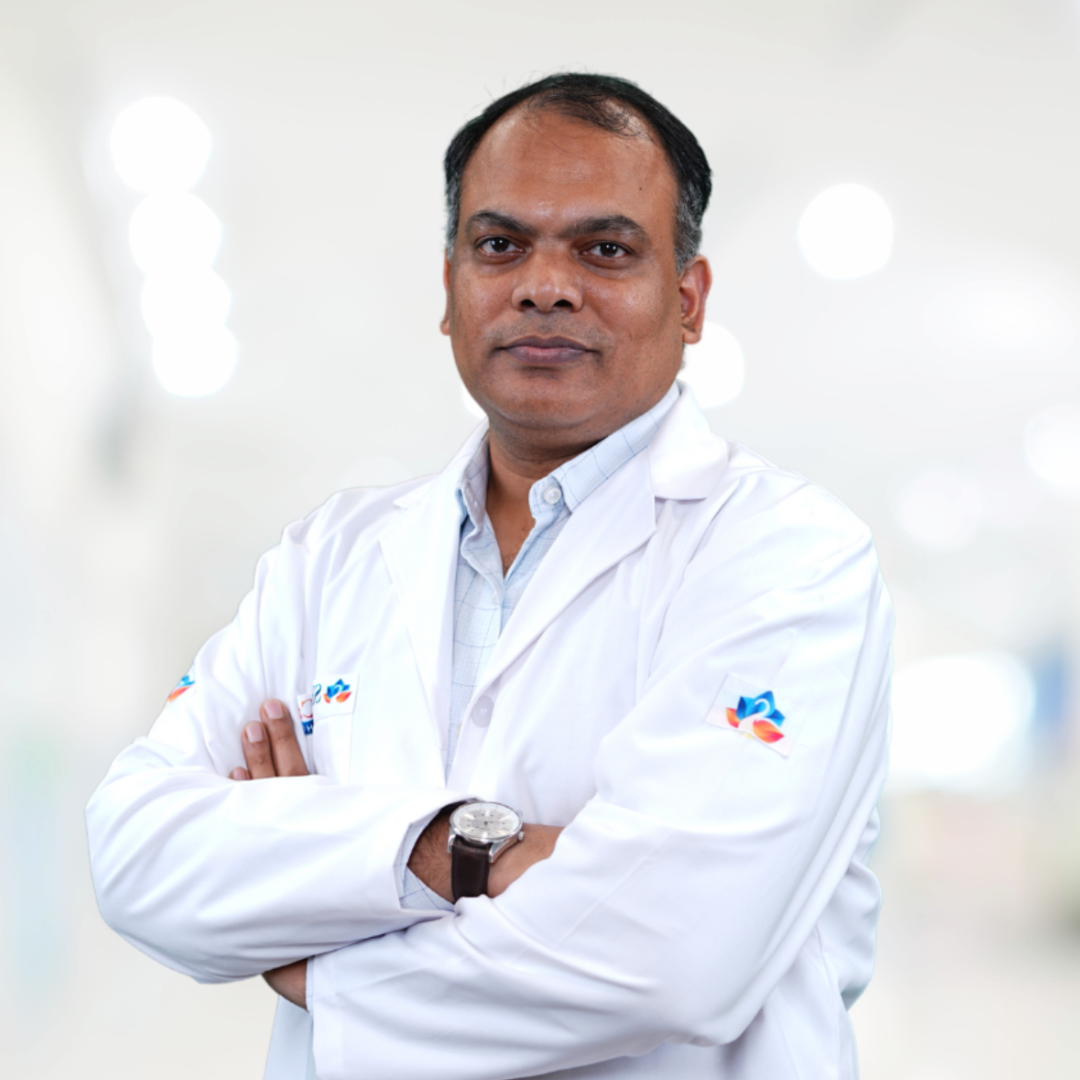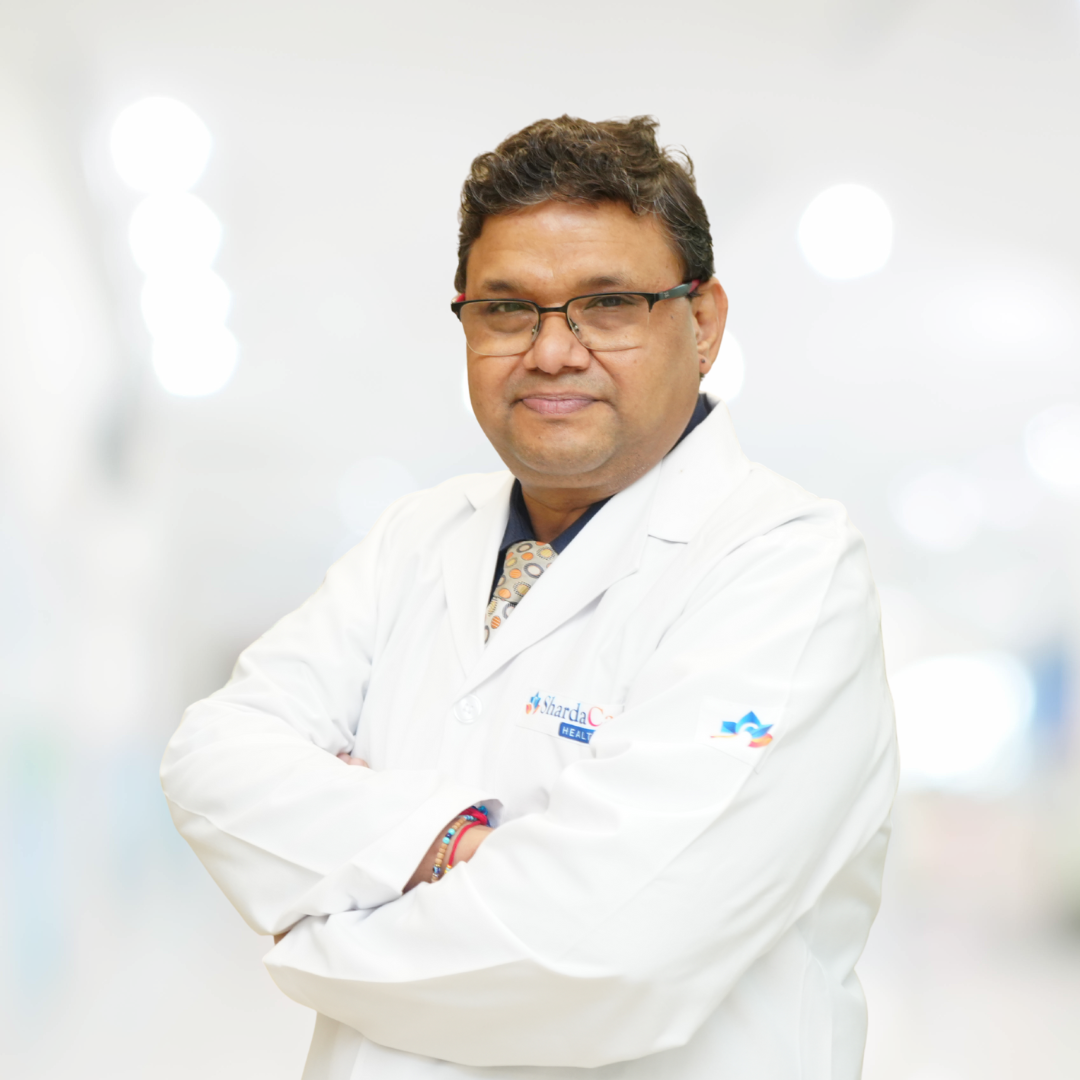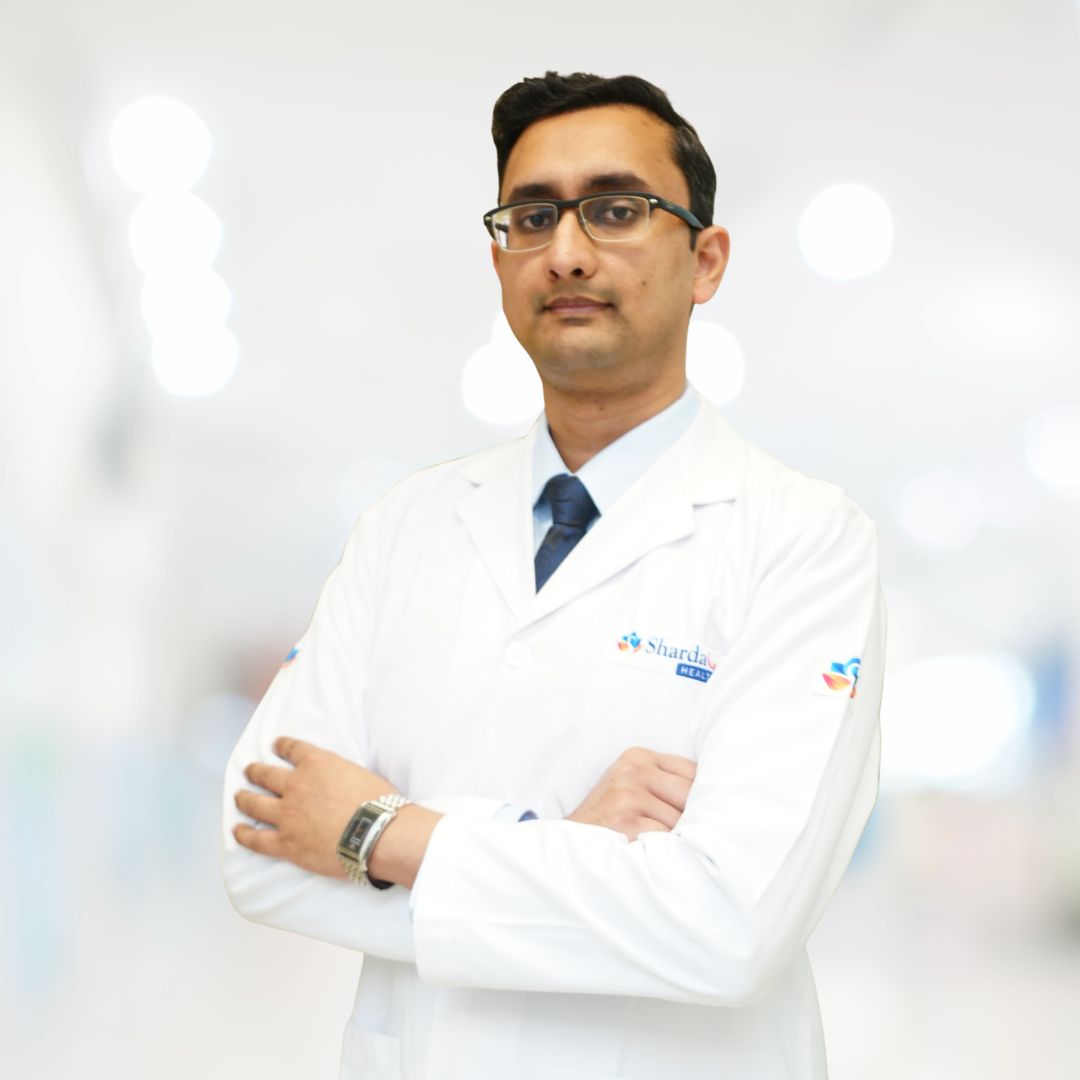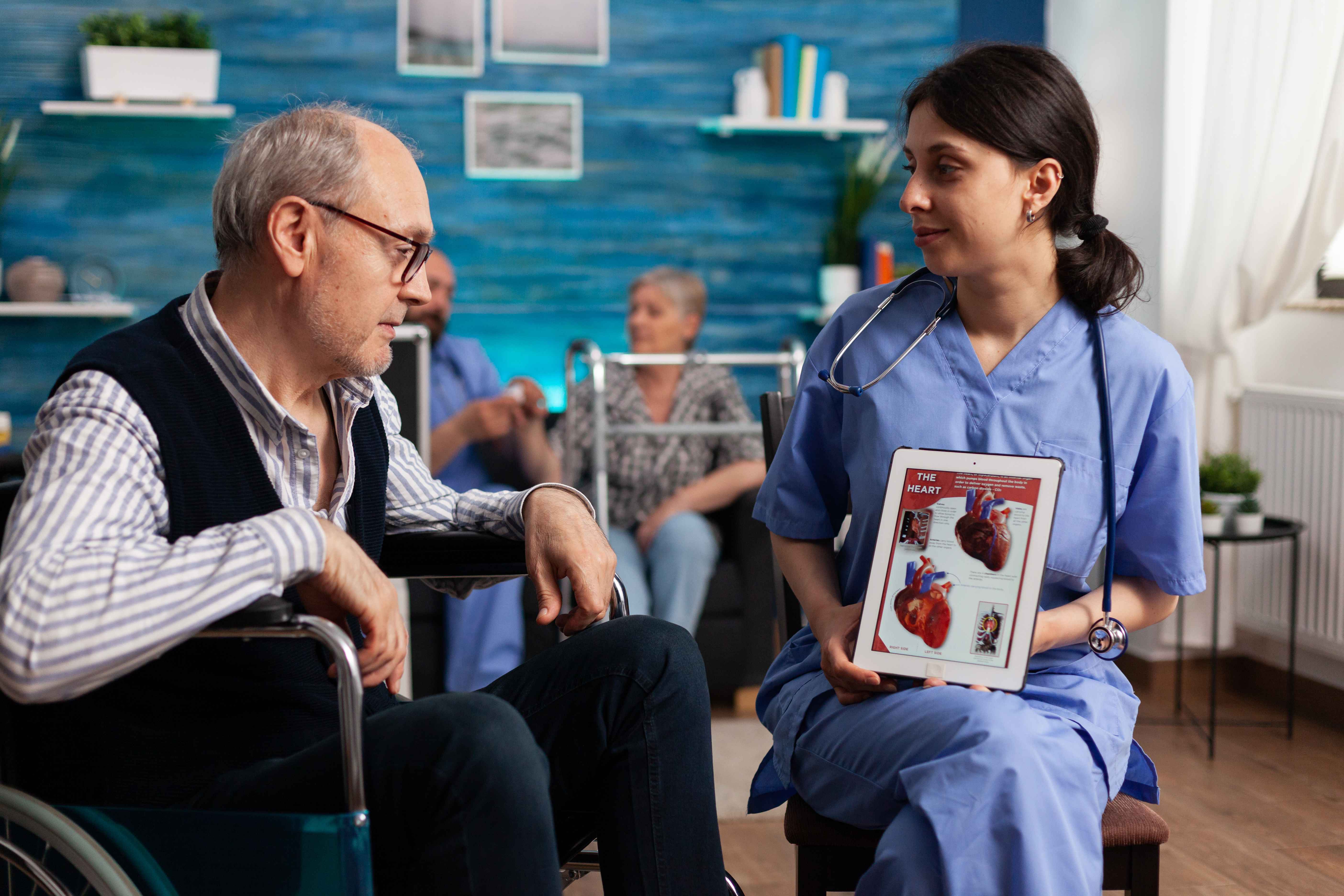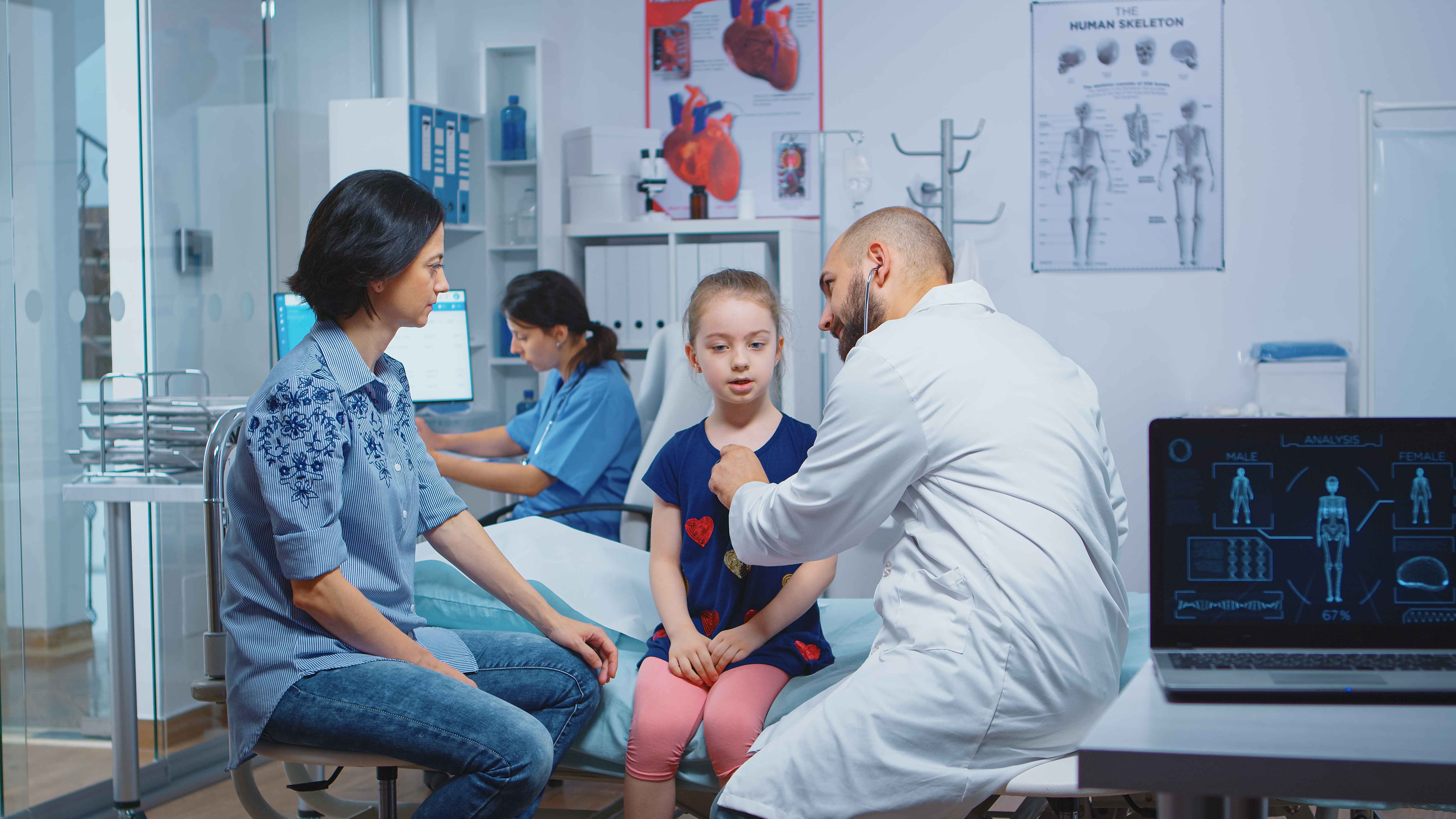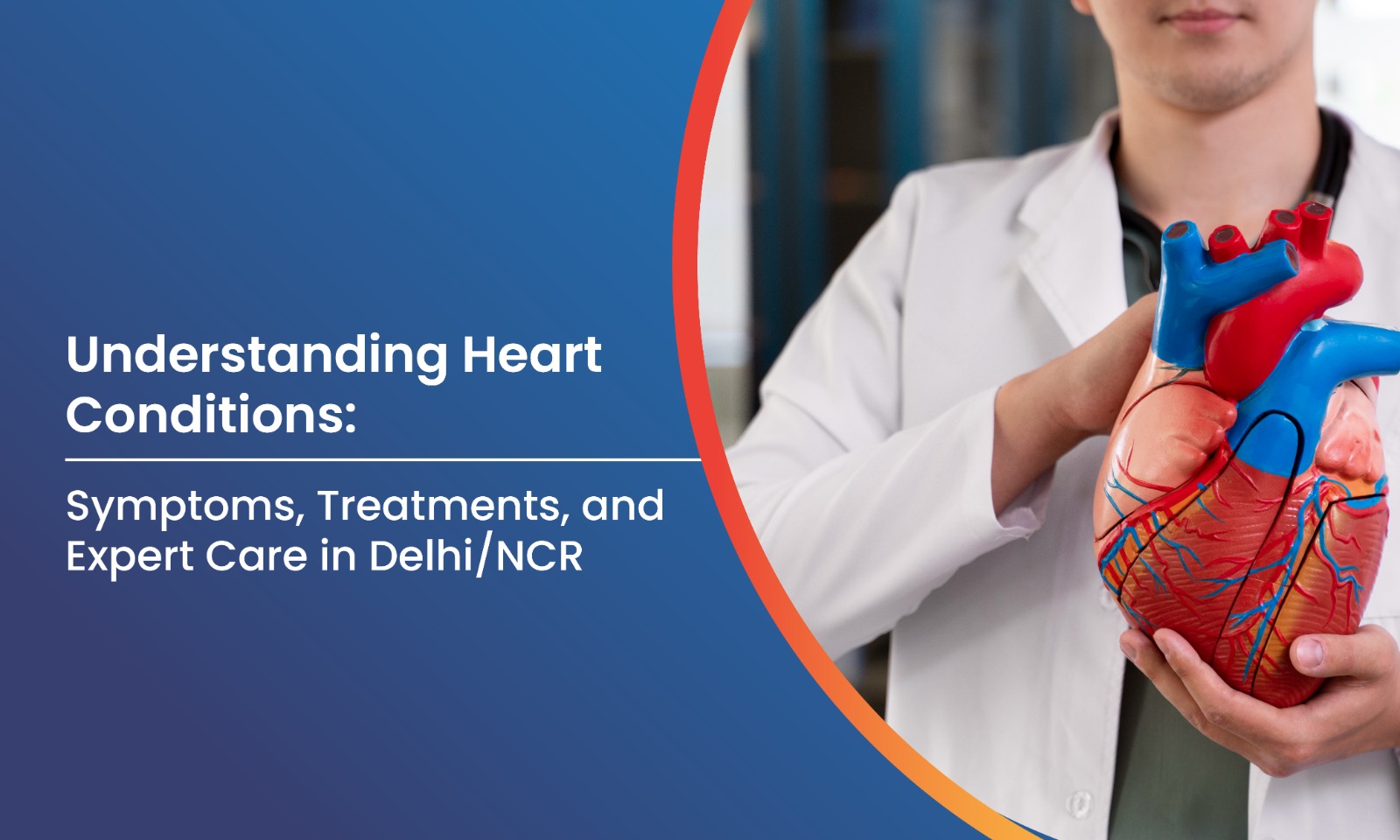
Interventional Cardiology & Minimally Invasive Heart Treatments at ShardaCare – Healthcity
Interventional Cardiology offers a Minimally Invasive approach to diagnosing and treating Heart and Blood Vessel diseases through Catheter-based techniques. These procedures avoid the need for open Surgery or Large Incisions, utilizing Thin Tubes called Catheters inserted through a small Skin puncture. Guided by X-ray or Ultrasound imaging, these Catheters reach the affected area. This approach provides patients with benefits like Quicker Recovery, Reduced Pain, Lower Infection Risk, and Shorter hospital stays. At ShardaCare - Healthcity , our skilled Interventional Cardiologists employ cutting-edge Techniques to ensure optimal outcomes for every patient.
Interventional Cardiology effectively addresses various Heart conditions, including:
- Coronary Artery Disease (CAD): Occurs when Arteries carrying Blood to the Heart Muscle narrow or become blocked, leading to symptoms like Chest Pain or Cardiac Attacks.
- Valvular Heart Disease: Involves Dysfunction of Heart Valves, disrupting Blood Flow between Heart Chambers and causing symptoms such as Fatigue, Swelling, or Heart Failure.
- Structural Heart Disease: Characterized by Abnormalities in the Heart's shape or function, either congenital or acquired. Examples include Atrial Septal Defect (ASD), Ventricular Septal Defect (VSD), Patent Foramen Ovale (PFO), or Hypertrophic Cardiomyopathy (HCM).
At ShardaCare - Healthcity , we offer a range of advanced procedures in Interventional Cardiology to address various Heart conditions:
- Coronary Angiography: Utilizing special Dye and X-rays, this test visualizes Heart Arteries to detect Blockages or Narrowing.
- Coronary Angioplasty and Stenting: A procedure using a Balloon and Stent to open blocked Arteries and restore Blood Flow.
- Coronary Atherectomy and Rotablation: Employing a device to remove plaque causing Artery Blockages.
- Balloon Valvuloplasty: Widening narrowed or stiff Heart Valves to improve function.
- Transcatheter Aortic Valve Replacement (TAVR): Implanting an Artificial Valve via a Catheter without removing the Old Valve.
- Transcatheter Mitral Valve Repair (TMVR): Clipping or Stitching Mitral Valve leaflets to reduce Blood Leakage.
- Device closure of ASD, VSD, PFO: Placing a device via Catheter to seal Heart Chamber Holes, preventing Blood mixing.
- Alcohol Septal Ablation: Injecting Alcohol into a Coronary Artery branch to shrink thickened Heart Muscle and Relieve Obstruction.
- Left Atrial Appendage Closure (LAAC): Placing a device via Catheter to Block the Left Atrial Appendage, reduces Stroke risk.
Looking for an Expert
Sharda Care The Healthcity is home to some of the eminent Doctors in the world.
Book an Appointment


